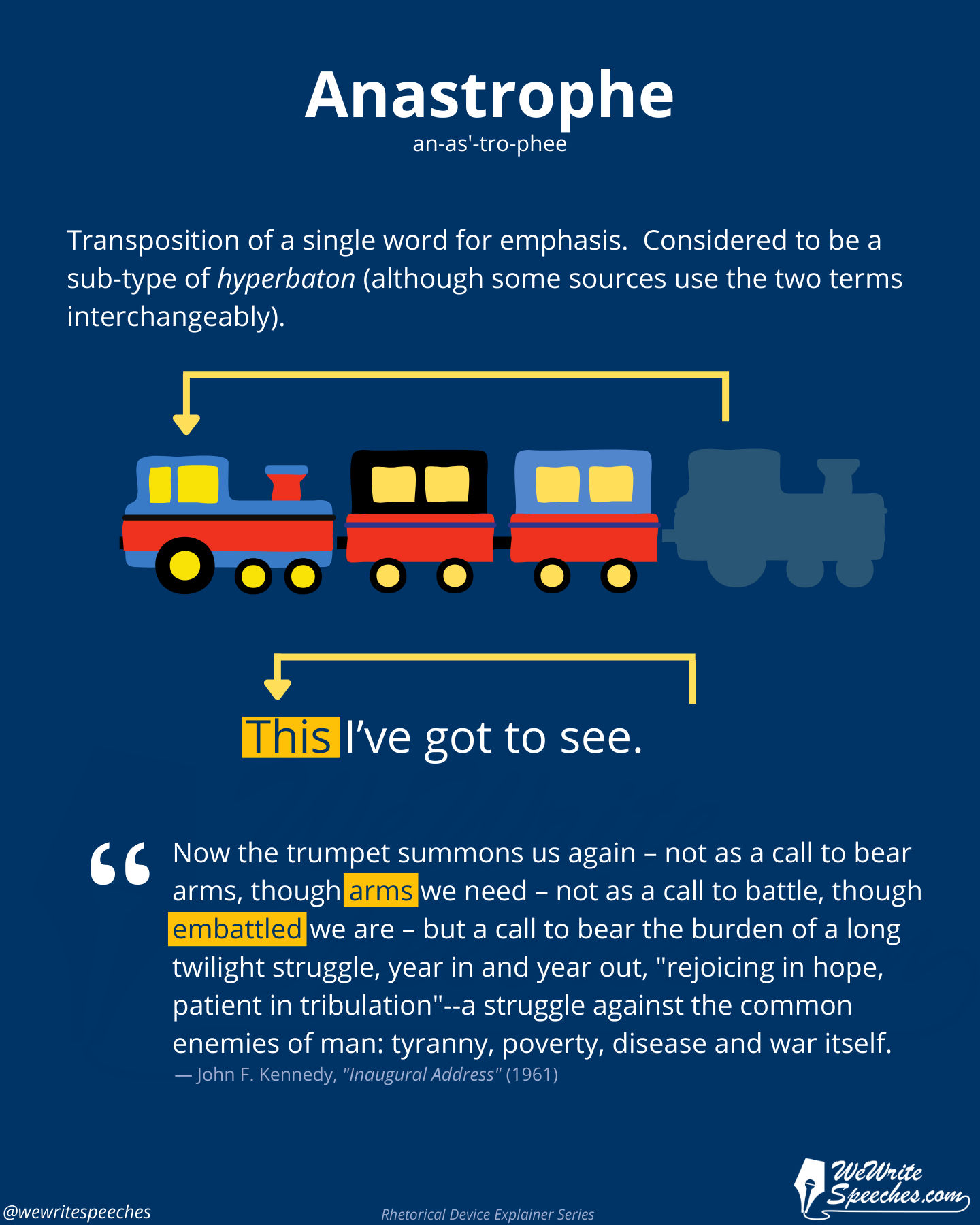Rhetorical Device: Anastrophe
Anastrophe is a rhetorical device in which the order of a word in a sentence is changed to create an unexpected effect or emphasis. It is often used to convey strong emotion and is sometimes referred to as "inversion". This figure is considered to be a sub-type of hyperbaton which includes more types of adjusted word order.
Examples
Sure I am of this, that you have only to endure to conquer. Winston Churchill, "Address delivered at the Guildhall, London" (14 September 1914)
Now the trumpet summons us again – not as a call to bear arms, though arms we need – not as a call to battle, though embattled we are – but a call to bear the burden of a long twilight struggle, year in and year out, "rejoicing in hope, patient in tribulation"--a struggle against the common enemies of man: tyranny, poverty, disease and war itself. John F. Kennedy, "Inaugural Address" (20 January 1961)
The cause that begets this indomitable persistency, the faculty of preserving through centuries of misery the remembrance of lost liberty — this surely is the noblest cause ever man strove for, ever lived for, ever died for. Roger Casement, "Speech From The Dock" (3 August 1916)
